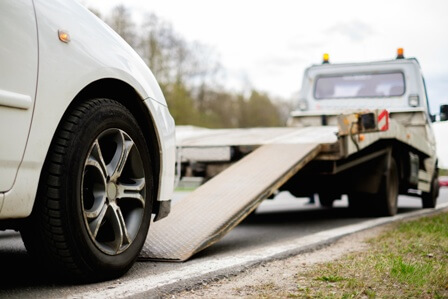Car rental insurance is an essential consideration for anyone looking to rent a vehicle,
whether for a quick business trip, a leisurely vacation, or as a temporary replacement for a
personal vehicle undergoing repairs. Currently, we are witnessing tremendous growth in the
car rental business, and that can come with challenges. In Canada, navigating the
complexities of car rental insurance can be daunting, but understanding its intricacies is
critical to ensuring you get adequately protected in various situations. Let’s break down what
car rental insurance is, how it functions, and why it’s a critical component of renting a
vehicle.
What is Car Rental Insurance?
When you rent a car, getting rental insurance means you’re covered if anything goes wrong.
It’s there to protect you and the rental company from forking out cash for repairs, medical
costs if someone gets hurt, or if any personal items are damaged. Plus, this kind of
insurance typically includes extra safeguards against someone stealing or vandalizing the
rental car.
When renting a car in Canada, you’re typically presented with several insurance options:
Collision Damage Waiver (CDW) / Loss Damage Waiver (LDW): This isn’t
traditional insurance but rather a waiver that shifts the responsibility for collision or
loss from the renter to the rental company.
Liability Insurance: The Liability Insurance is a special coverage that protects you if
you’re responsible for injuring others or damaging property while driving the rental car.
Personal Accident Insurance (PAI): If the insured risk occurs and happens to have
casualties, the Personal Accident Insurance covers all the medical and care
expenses.
Personal Effects Coverage (PEC): This insures the personal belongings you have
in the rental car.
How Does Car Rental Insurance Work?
When you rent a car, you are liable for any damages or losses to the vehicle during the
rental period. Car rental insurance is designed to cover these liabilities up to the policy limits.
Here’s how each type of coverage functions:
Collision/Loss Damage Waiver (CDW/LDW): This unique coverage is meant to
shield you from any financial expenses that come into play when the rental car
breaks down. It may exclude coverage for damages resulting from reckless
behaviour or driving under the influence.
Liability Insurance: In case of causing injury to others or their property, liability
insurance ensures you’re not personally footing the bill for legal costs or claims
against you within the policy’s limits.
Personal Accident Insurance (PAI): PAI provides the renter and passengers with
coverage for medical, ambulance, and death benefits if they’re involved in an
accident.
Personal Effects Coverage (PEC): This protects against the loss of personal
belongings from the rental car, a concern for those travelling with expensive items
like laptops or cameras.
Determining Appropriate Coverage Levels
It’s essential to assess the amount of coverage you need based on the value of the rental
car and your personal risk tolerance. For international renters, it’s crucial to check whether
their travel insurance provides any applicable rental car coverage.
Understanding Canadian Specifics
Canadian car rental insurance may differ from province to province. Some provinces have
higher minimum liability requirements than others. Moreover, if you’re crossing provincial
lines, you must ensure your coverage meets all applicable standards. Therefore, before
settling on a rental car insurance plan, it is wise to get up to speed with the different province
rental car insurance policies.
The Value of Supplemental Insurance:
While your personal auto insurance or credit card may offer some form of coverage, there
may be gaps that leave you exposed. Supplemental insurance through the rental agency or
a third-party provider can offer comprehensive protection and peace of mind.
Navigating Claims and Deductibles
Familiarize yourself with the claims process and understand the deductible amounts. A
higher deductible could mean lower upfront costs for the insurance but more out-of-pocket
expenses in the event of an accident. An idea of how the claims and deductible work will
help make the entire process easy and seamless.
Evaluating the Need for Additional Protection
Consider factors such as the duration of your rental period, the types of roads you’ll be
travelling on, and the likelihood of encountering severe weather conditions. These
considerations can impact the type and extent of coverage you need.
Conclusion
Car rental insurance is a critical component of the rental process in Canada, providing
essential protection against unpredictable incidents. Whether you’re a resident renting a car
for a weekend trip or explorations, ensuring the perfect coverage to shield you in an accident
or theft is vital. Before you sign the rental agreement and hit the road, take a moment to
review your car rental insurance options. Make an informed decision that balances cost with the level of protection you’re comfortable with. Don’t let uncertainty detract from your driving
experience. Partner with a-protect and shield your car from all unforeseen damages as you
plan to familiarize yourself with the rental car services. Contact us via phone at +1 416-661-
7444 or email info@a-protectwarranty.com for more assistance.



